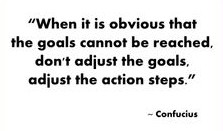Selling Your Business – Essential First Steps
Are you thinking about selling your business? We assist small business owners with management transitions. For clients interested in selling their businesses, we help them focus on these essential first steps:

1. Understand your business exit motivations
Why do you want to sell your business? Perhaps you want to start a new business or focus on other pursuits. Maybe you are burned out, at odds with your business partner, or ready to retire. It is important to understand what is motivating your decision to sell your business. Your current perspective and emotional outlook can affect your approach to the sale and the timing of your business exit.
2. Prioritize your sales goals
It is good to start a business sale process with a clear idea of your desired outcomes. Are you looking to sell immediately? Is a high sale price the most important factor for you? Do you want to remain involved in some capacity? Do you have preferences for who buys the business? Do you want to influence how the business operates after you sell? Is a cash sale necessary or will you consider seller financing? Clarifying what you want will affect the sales approach you take.
3. Assess your business’ current condition
Is your business a good sales prospect? Is your business likely to attract a buyer? Are there areas of the business that will need improvement before you sell? When looking at each aspect of your business, you must try to understand the business from a potential buyer’s perspective. You need to consider your sales and profit history, the business’ financial condition and your products or services. For a brick and mortar business, look at your business location, your facilities and your equipment. To be a good sales prospect, your business may need to retain your employees and your clientele…and perhaps even you for three to six months!
4. Assess the current value of your business
How much is your business worth? Valuing your business helps you set an asking price. There are different ways to determine the value of a small business. You will need to consider your tangible and intangible assets and the business’ prospects for growth. You can hire a business valuation expert to do a business appraisal or work with a business broker to request a Broker’s Opinion of Value. With recent tax returns and financial projections in hand, it may be sufficient to work with us to do some simple calculations to estimate a realistic amount.
Now you are ready
Once you are clear on your motivations, your goals, and the current condition of your business, you are ready for one of these next steps:
• Prepare to present a sale-ready business to interested buyers.
• Invest the time to make your business more attractive to buyers and increase its value. (This would start with an action plan and timeline for each area of the business that needs improvement.)
• Offer to sell the business at its current sub-par condition (knowing you may have lower interest and/or a lower sale price).
• Continue to operate the business as well as you can and close it when you are “done”, selling any tangible assets.
We can help! We work with clients through these initial business transition steps. We review the current business so you can consider a business sale. We help with business improvement action plans to improve the value of your assets (even if you do not sell right away). We help you compile the documentation necessary for a business sale. Learn more.


